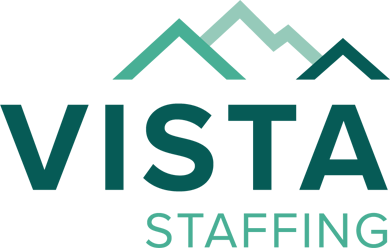Are You Saving For Retirement While Working Locum Tenens?

As self-employed, independent contractors, locum tenens clinicians don’t have access to a traditional employer-sponsored retirement plan, such as a 401(k) or pension plan. But that doesn’t mean that they should not or cannot save for retirement; they need to find alternatives to ensure long-term financial stability.
Fortunately, there are several different retirement plan options available, each with its benefits. In this post, we’re going to walk through the alternative ways that clinicians can save for retirement while working locum tenens.
Traditional or Roth IRA
One of the most common starting points for retirement contributions is an IRA, specifically a traditional IRA or a Roth IRA.
Both of these have low contribution limits. As of 2019, the maximum contribution limit is $6,000 or $7,000 for those aged 50 or older. Some differences between the two revolve around taxation. Selecting the right one is contingent on understanding the tax implications behind the handling of contributions made.
Contributions made to a traditional IRA are tax-deductible, offering contractors immediate benefits and savings. Contributions made to a Roth IRA are made after taxes are paid, but they come with more flexibility over time. Roth IRAs are permissive to early withdrawals of contributions (not earnings), which means that contractors can withdraw contributions early without incurring penalties.
Solo 401(k)
These are very easy to set up and come with no minimum annual contributions, giving you the maximum flexibility to use them. However, they have lower maximum annual contributions than other plans. The maximum yearly contribution for someone younger than 50 years of age is $57,000. For contractors older than 50, the maximum contribution limit goes up to $63,500.
These contributions are pre-tax, meaning that they are made on income before taxes are paid. Upon withdrawing the funds, taxes will need to be paid.
Aside from having to pay for yourself, the significant difference between this option and a traditional 401(k) is that a solo 401(k) is exempt from ERISA-mandated discrimination testing.
SEP IRA
Also known as a simplified employee pension, this plan allows contractors to contribute up to 25% of their self-employment income. With this plan, annual contributions are made, but there is no yearly maintenance fee. These work very similarly to solo 401(k) plans, although they come with less paperwork and administrative burden and no annual reporting to the IRS.
For any contractors with employees, the downside to this option is that the same percentage of pay must be contributed to all employees.
Defined Benefit Plan
This is the most commonly used retirement plan among the self-employed because of its high limits, tax breaks, and flexibility. The maximum cap for yearly contributions is $230,000, which is among the highest for retirement plans. And all annual contributions are tax-deductible — although that means taxes will need to be paid on any withdrawals.
This plan effectively serves as an individual’s very own pension plan. The downside to this retirement plan option is that it generally involves a high amount of paperwork and a commitment regarding how much will be contributed each year. Otherwise, additional fees will be incurred. However, for individuals who are confident about consistently contributing a specific amount to their retirement, this plan’s high limits allow for high retirement savings.
Locum tenens clinicians don’t have access to traditional retirement plans, but there are many ways to save for the future. We’ve reviewed some of the best alternatives. Independent contractors should consider the features and benefits of each to select the best option for their needs.
Disclaimer: VISTA Staffing does not provide tax, legal, or accounting advice. This article has been prepared for informational purposes only and is not intended to provide and should not be relied on for, tax, legal, or accounting advice. You should consult your tax, legal, and accounting advisors before engaging in any transaction.










